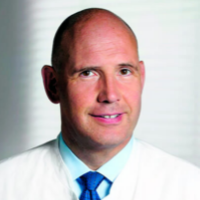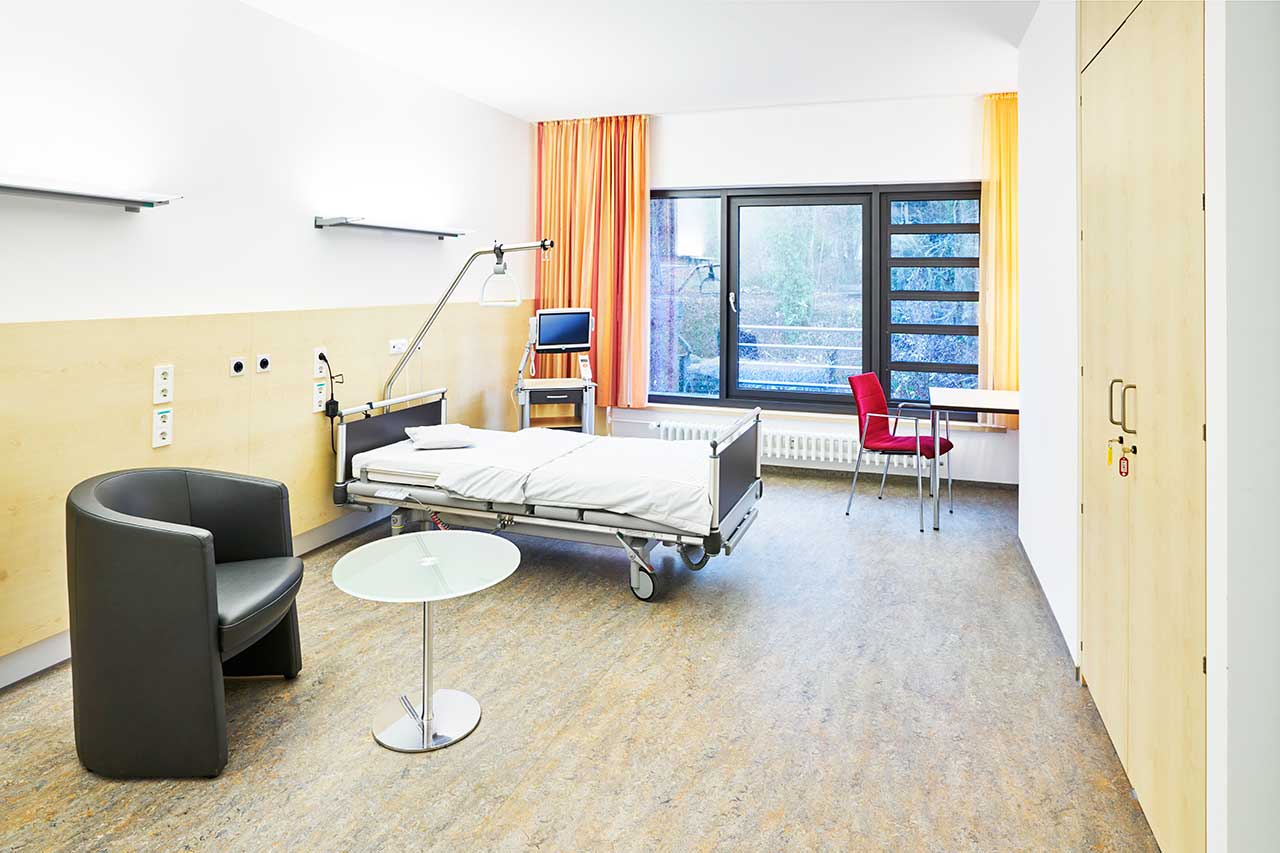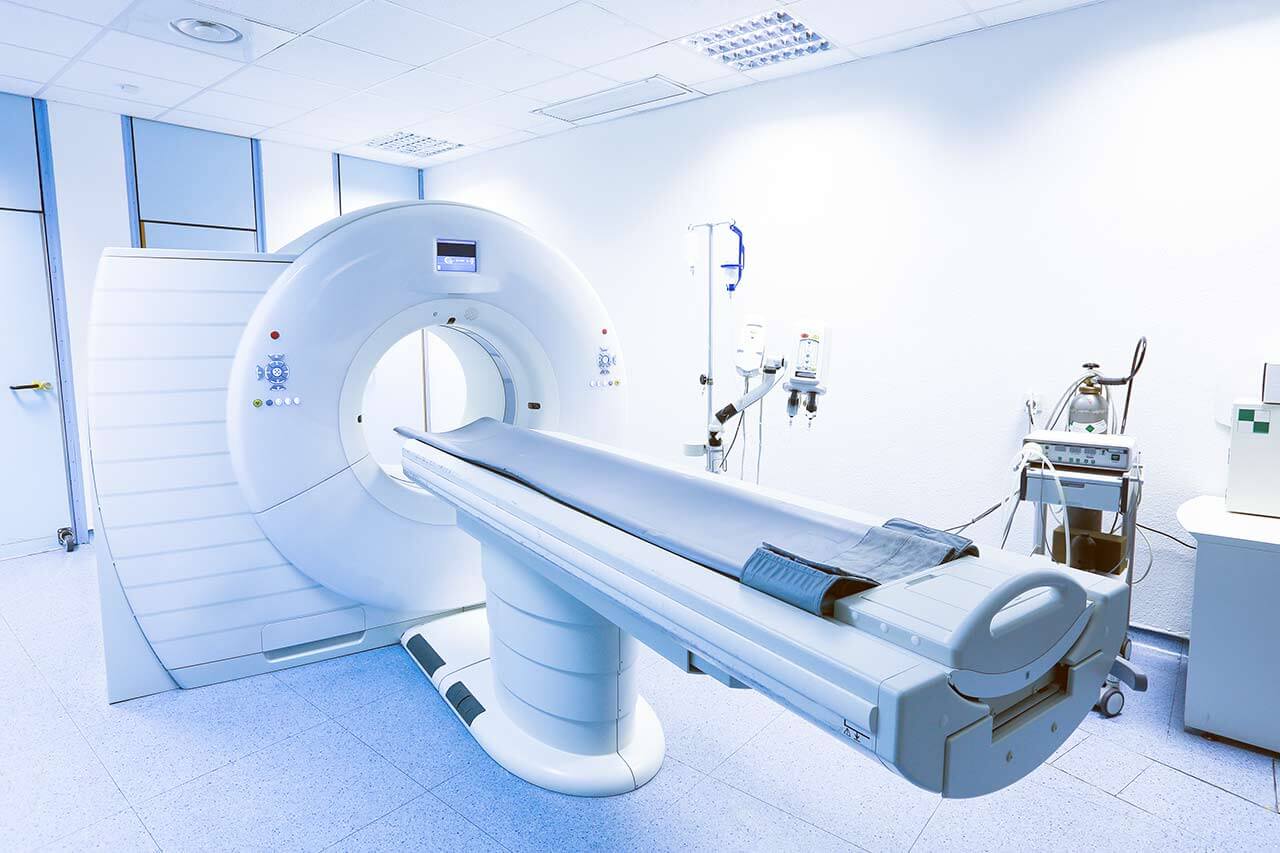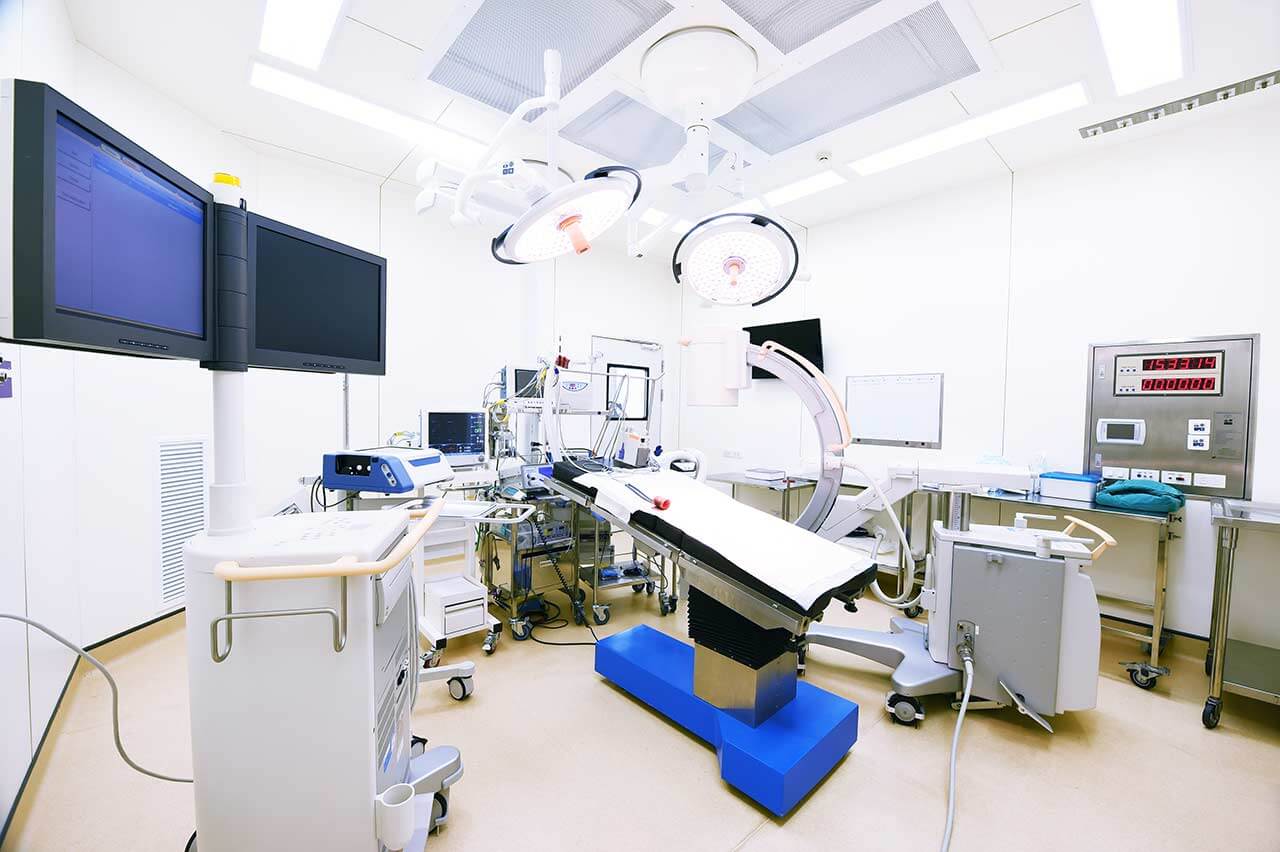
The program includes:
- Initial presentation in the clinic
- clinical history taking
- review of medical records
- physical examination
- laboratory tests:
- complete blood count
- general urine analysis
- biochemical blood test
- inflammation markers (CRP, ESR)
- blood coagulation analysis (aPTT, PT, INR)
- hormone test (LH, FSH, prolactin, estradiol, progesterone, testosterone)
- gynecological examination:
- colposcopy
- vaginal swab
- transvaginal ultrasound
- ultrasound of abdomen and pelvic organs
- nursing services
- consultation of related specialists
- treatment by chief physician and all leading experts
- explanation of individual treatment plan
(the cost of medicines is not included)
Required documents
- Medical records
- Ultrasound scan (if available)
Service
You may also book:
 BookingHealth Price from:
BookingHealth Price from:
About the department
According to the Focus magazine, the Department of Adult and Pediatric Gynecology, Mammology, Obstetrics at the University Hospital Erlangen ranks among the top German departments specializing in obstetrics and breast cancer treatment!
The department offers the full range of services in the areas of its specialization and is one of the largest medical facilities of this kind in Germany. Of particular interest is the treatment of cancers of the female reproductive system, including breast cancer, medical care for hormonal imbalance of gynecological genesis, treatment of urinary incontinence and pelvic organ prolapse in women, top-class obstetric care and integrated pregnancy management. In addition, the department's gynecologists admit women suffering from infertility. They can undergo comprehensive diagnostics of the reproductive system and the further required therapeutic manipulations, such as uterine fibroid removal, treatment of endometriosis and other pathologies, which prevent the conception of a child. The department also specializes in the treatment of congenital malformations and acquired gynecological diseases in children. The highly qualified team of doctors with colossal experience, who keep pace with advanced innovations in medicine, take care of the patients' health. The specialists do everything possible to restore the health of patients, taking into account their needs and wishes.
The department is headed by Prof. Dr. med. Matthias Beckmann. Thanks to him, the department experienced radical changes that brought the medical facility to a higher medical and economic level. Among the most significant achievements, it is worth mentioning the increased number of researches in the field of molecular medicine, advances in minimally invasive surgery, including in cancer treatment.
The department admits about 9,000 inpatients and more than 27,000 outpatients every year. To provide multidisciplinary and highly qualified medical care, doctors of various specializations cooperate closely in certified centers of the hospital, for example, the Center for Perinatal Medicine, the Center for Reproductive Medicine, the Center for Urinary Incontinence and Pelvic Floor Diseases, and the Center for Endometriosis Care. These centers are specialized in particular fields and provide patients with the optimal treatment of pathologies of varying severity.
In the field of general gynecology, doctors deal with the treatment of patients with endometriosis, uterine fibroids, chronic lower abdominal pain, cervical dysplasia, polycystic ovary syndrome, menstrual irregularities and other gynecological diseases. To treat these pathologies, doctors use both conservative and surgical methods (most often minimally invasive). Whenever possible, non-invasive treatment is preferred.
One of the key areas of the department's work is the treatment of the full range of malignant tumors of the female reproductive system. The doctors specializing in gynecologic oncology regularly demonstrate successful treatment results, thanks to which the department has been awarded the prestigious certificate of the German Cancer Society (DKG). Upon admission to the department, doctors accurately study the woman's medical history and perform the necessary diagnostic tests. Should cancer be detected, a clinical case will be considered at an interdisciplinary tumor board, since cancer is a complex clinical task, and its successful cure requires the involvement of doctors from related medical fields, including gynecologists, oncologists, radiologists, surgeons, and others. Each patient benefits from an individual treatment regimen, which takes into account the type of tumor (uterine cancer, cervical cancer, ovarian cancer, vulvar cancer, endometrial cancer, etc.), its stage, age and general health condition of the patient, the presence of concomitant diseases and other important aspects. The treatment is provided in strict accordance with current clinical protocols and recommendations of professional societies. In most cases, the first-line treatment is surgery to remove the malignant tumor. The gynecologists of the medical facility perform all available surgical interventions: organ-preserving interventions, laparoscopic surgeries, pelvic exenteration, plastic reconstructive surgeries. After (sometimes also before) the surgical procedure, chemotherapy, radiation therapy, hormone therapy, targeted therapy and other conservative treatments are used to help completely cure cancer or achieve long-term remission. In addition, an obligatory component of the treatment of oncopathology in the department is the help of highly qualified psychologists.
Mammology is an integral part of the department's clinical practice. Doctors diagnose and treat all breast diseases in women and men. Particular attention is paid to malignant breast tumors. The department's specialists strive to detect such diseases at the early stages and perform tumor resection in combination with radiation therapy and/or chemotherapy. The advanced stages often require more drastic measures, including total breast removal (total mastectomy). Additionally, chemotherapy, radiation therapy, immunotherapy, hormone therapy and other techniques can be used. Thanks to long experience and advanced medical equipment, the department's specialists are able to significantly prolong the lives of patients with advanced stages of breast cancer and improve its quality. After completing the basic course of treatment, patients can undergo reconstructive surgery to restore the attractive appearance of the breast. The department's specialists have a perfect command in reconstructive surgical techniques, and therefore, after such operations, the patients can completely restore the beauty of the breast and regain self-confidence.
The department's specialists regularly admit patients with urinary incontinence and pelvic organ prolapse. As a rule, women complain of overactive bladder, sudden and unintended urination, foreign body sensation within the bladder, stress incontinence, reflex urinary incontinence, prolapse of the uterus, bladder, and rectum. The department offers all the possibilities for eliminating the above pathological conditions. If necessary, the specialists from related medical fields can be involved in the treatment. With appropriate clinical indications, the preference is given to conservative treatment methods.
The department is one of the few in Germany, which provides medical care for young children and adolescents with gynecologic disorders. This indicates the highest level of medical care, since the treatment of these diseases in children and adolescents requires special skills and qualifications. During the examination of young patients, the child's age, physiological development and hormonal status are taken into account. When an accurate diagnosis is made, doctors individually develop a treatment regimen. The department most often deals with the treatment of children with adrenogenital syndrome, hypermenorrhea, dysmenorrhea, inflammatory processes in the reproductive organs, genital malformations, genital traumas, menstrual irregularities in girls, Ullrich-Turner syndrome and other pathologies.
The department's therapeutic offer is complemented by high-quality obstetric services. The department carries out the full range of prenatal examinations to monitor the course of pregnancy, including high-risk pregnancies. The obstetricians have four state-of-the-art delivery rooms, two of which are equipped with a special bathtub for water birth. There is also a separate operating room for C-sections and other obstetric interventions. The department also has an intensive care unit for providing emergency medical care to newborns.
The department's main clinical activities include:
- Gynecology
- Diagnostics and treatment of uterine fibroids
- Diagnostics and treatment of ovarian cysts
- Diagnostics and treatment of polycystic ovary syndrome
- Diagnostics and treatment of endometriosis
- Diagnostics and treatment of hormonal imbalance caused by gynecological pathologies
- Diagnostics and treatment of urinary incontinence
- Diagnostics and treatment of pelvic organ prolapse
- Diagnostics and treatment of precancerous conditions (cervical dysplasia)
- Diagnostics and treatment of malignant diseases of the female reproductive system
- Uterine cancer
- Cervical cancer
- Ovarian cancer
- Vulvar cancer
- Endometrial cancer
- Diagnostics and treatment of gynecological diseases and congenital malformations of the female reproductive organs in children of all age groups
- Mammology
- Diagnostics and treatment of breast cancer, including removal of breast metastases
- Diagnostics and treatment of benign breast diseases (for example, mastopathy, breast cysts, fibroadenomas)
- Diagnostics and treatment of inflammatory breast diseases (mastitis)
- Diagnostics and treatment of breast malformations
- Amastia (absence of one or both breasts)
- Polymastia (formation of accessory mammary glands in atypical places)
- Breast hypoplasia (insufficient development of the breasts in relation to the general structure of the body)
- Juvenile gigantomastia (rapid growth of the breast over several months)
- Tuberous breast deformity (malformation in which the breast takes the form of a tube)
- Breast asymmetry
- Poland and Amazone syndromes
- Obstetrics
- Comprehensive prenatal diagnostics and management of pregnancy, including high-risk pregnancies
- Childbirth (including C-section)
- Postpartum care for mother and baby
- Emergency medical care for the baby
- Other medical services
Curriculum vitae
Academic and Professional Career
- Since 2010 Director of the Comprehensive Cancer Center Erlangen-Nuremberg at the University Hospital Erlangen and Nuremberg City Hospital.
- Since 2008 Chairman of the Board of the Cancer Center Erlangen-Nuremberg.
- Since 2002 Scientific Director of the Institute for Women's Health GmbH (IFG®) Erlangen.
- Since 2001 C4 Professor and Head of the Department of Adult and Pediatric Gynecology, Mammology, Obstetrics at the University Hospital Erlangen.
- 1994 - 2001 Senior Physician, Managing Senior Physician, Department of Gynecology, University Hospital Duesseldorf.
- 1991 - 1994 Research Fellow, Department of Gynecology, Johann Wolfgang Goethe University Frankfurt and Heinrich Heine University Duesseldorf.
- 1989 - 1991 Postdoctoral Fellow, Human Pharmacology, SANDOZ, Basel, Switzerland; Reproductive Medicine, Experimental Oncology, Section of Reproductive Endocrinology and Fertility, Department of Obstetrics and Gynecology, Department of Experimental Pathology, University of Chicago, USA.
- 1988 Diploma in Tropical Medicine and Public Health, Swiss Tropical and Public Health Institute, Basel, Switzerland.
- 1986 - 1988 Assistant Physician, KKH Emmendingen Hospital.
- 1986 Admission to medical practice, Stuttgart.
- 1979 - 1986 Study of Human Medicine, Albert Ludwig University of Freiburg, Germany; Catholic University of Leuven, Brussels, Belgium; Columbia University, New York, USA; Durban University, South Africa; Louis Pasteur University, Strasbourg, France.
Main Research Focuses
- Genetic predisposition to breast cancer, ovarian cancer and endometrial cancer.
- Molecular pathogenesis of endometriosis.
- Minimally invasive methods of cancer treatment.
Memberships in Professional Societies
- German Society of Gynecology and Obstetrics.
- Deputy Chairman of the Gynecological Oncology Working Group (AGO).
- Gynecological Endoscopy Working Group (AGE).
- German Professional Association of Gynecologists.
- Experimental Cancer Research Working Group (AEK).
- Bavarian State Cancer Association.
- German Society of Senology.
- German Society of Endocrinology (DGE).
- American Association for Cancer Research (AACR).
- European Cancer Prevention Organisation (ECP), Multinational Breast Cancer Linkage Consortium (BCLC).
- German Society for Gynecologic Endoscopy and Obstetric Endoscopy.
- Expert Reviewer for Gynecologic Oncology, Bavarian State Medical Association.
Photo of the doctor: (c) Universitätsklinikum Erlangen
About hospital
According to the Focus magazine, University Hospital Erlangen ranks among the best medical facilities in Germany!
The hospital is one of the leading healthcare facilities in Bavaria and offers top-class medical care distinguished by the close intertwining of clinical activities with research and training of medical students. The hospital was founded in 1815 and today is proud of its rich traditions, numerous medical achievements and an excellent reputation not only in Germany, but also in the international arena. The hospital has 25 specialized departments, 7 institutes and 41 interdisciplinary centers, whose experts work tirelessly for the benefit of their patients.
The hospital has the status of a maximum care center, and therefore it represents almost all fields of modern medicine. Oncology, transplant medicine, and robot-assisted surgery are among the top priorities of the clinical activities of the medical complex. Oncology is represented by the Comprehensive Cancer Center Erlangen, which is one of 13 centers of excellence in Germany certified by the German Cancer Society. The university hospital has a high-tech center with high success rates for heart, liver, kidney, pancreas, cornea and bone marrow transplants. In addition, the hospital is a leader in the use of robot-assisted surgery. The medical facility has at its disposal innovative robotic technologies, in particular the da Vinci Surgical System, with the help of which surgeons perform many sparing interventions in various medical fields.
The medical team of the hospital consists of highly professional therapists, surgeons and nursing staff. The focus of their efforts is on the patient, his health and peace of mind, as well as comfort during treatment. The clinical practice of doctors is based on an individual approach to each case, which results in high treatment success rates. State-of-the-art technical equipment also plays an important role in the therapeutic process. The hospital is proud of the most advanced devices for imaging diagnostics (X-ray, ultrasound, CT, MRI, PET-CT, SPECT-CT, etc.), endoscopic examinations, laboratory tests, as well as specially equipped operating rooms for robot-assisted interventions, image-guided therapeutic manipulations, minimally invasive and classical surgeries of any complexity. Thus, the doctors of the university hospital have all the necessary resources to effectively treat the most severe pathologies and save lives.
The combination of high-tech equipment, experienced and highly qualified personnel, as well as strict adherence to the standards of modern medicine, form a solid foundation for the provision of the best medical care at the European level. An undeniable proof of the high prestige of the hospital is the constantly growing number of patients who come here from various regions of Germany and other countries of the world.
Photo: (с) depositphotos
Accommodation in hospital
Patients rooms
The patients of the University Hospital Erlangen live in comfortable rooms with light colors and modern design. Each patient room has an ensuite bathroom with shower and toilet. The furnishing of the patient room includes an automatically adjustable bed with an orthopedic mattress, a bedside table, a wardrobe, a table and chairs for receiving visitors, a TV, a radio and a telephone. Wi-Fi can be provided upon request. The use of a mobile phone is prohibited in many rooms of the hospital.
Patients can also live in enhanced-comfort rooms with a more sophisticated design. The enhanced-comfort rooms additionally include upholstered furniture, a minifridge and a safe.
Meals and Menus
The hospital offers healthy and tasty food distinguished by many awards, including the 1st place in the prestigious ESSEN PRO GESUNDHEIT competition of the Bavarian State Ministry of the Environment and Consumer Protection.
The patient and the accompanying person have three meals a day. Breakfast is served buffet style: scrambled eggs, boiled eggs, sausage, cheese, bread and buns with butter and jam, cereals, etc. There are three set menus for lunch and dinner to choose from: a classic menu featuring local cuisine dishes, a Mediterranean menu and a vegetarian menu.
If for some reason you do not eat all the foods, you will be offered an individual menu. Please inform the medical staff about your dietary preferences prior to the treatment.
The hospital also houses many cafeterias, which will delight with a wide range of delicious dishes and drinks.
Further details
Standard rooms include:
Religion
The hospital regularly hosts catholic and evangelical devine services. The services of representatives of other religions are available upon request.
Accompanying person
During an inpatient program, an accompanying person can stay with you in the patient room or in a hotel of your choice.
Hotel
During an outpatient program, you can stay in a hotel of your choice. The managers will help you choose the most suitable options.




